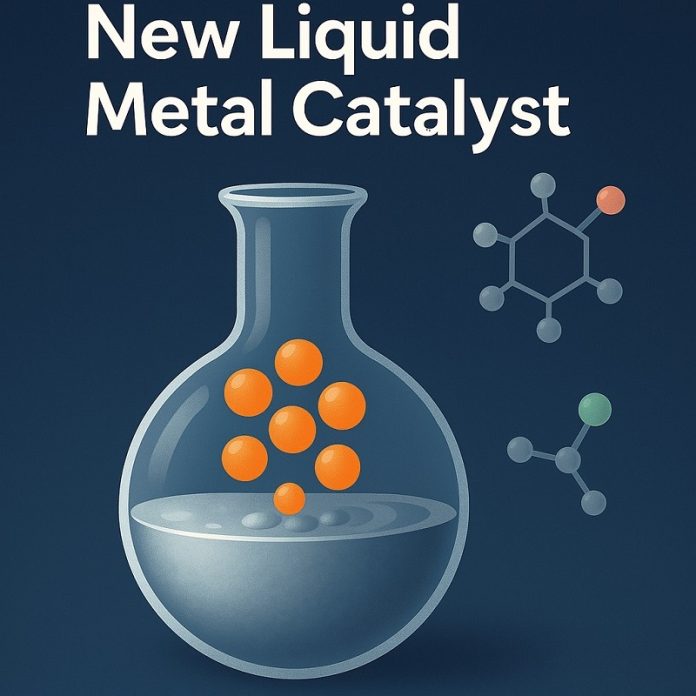
A major scientific breakthrough is set to change the way we make many everyday products—making the process faster, safer, and better for the environment.
Scientists from Monash University, the University of Sydney, and RMIT University have developed a powerful new liquid catalyst by combining two metals: palladium and liquid gallium.
This special mixture can speed up chemical reactions like never before and may soon be used in industries ranging from medicine and agriculture to electronics and plastics.
The research team, led by Associate Professor Md. Arifur Rahim from Monash University, created a self-renewing catalyst that performs far better than existing materials.
Catalysts are substances that help chemical reactions happen faster, and this new one is breaking records—accelerating reactions up to 100,000 times faster than today’s best palladium catalysts.
The team tested their new catalyst in a well-known chemical process called the Suzuki-Miyaura cross-coupling reaction.
This reaction helps build carbon-carbon bonds, which are the foundation of many important products, including medicines, crop treatments, and new materials like special plastics and electronics.
What makes this new liquid metal catalyst so special is how it works. Dr. Andrew J. Christofferson from RMIT explained that the palladium atoms don’t stay still—they float just below the surface of the liquid gallium.
These palladium atoms then “activate” the gallium above, where the chemical reaction takes place. This behavior is very different from solid catalysts, which have a fixed surface where reactions occur.
Another major benefit is that the palladium doesn’t leak into the final product, which is especially important for making safe pharmaceuticals.
The first author of the study, Md. Hasan Al Banna, said this feature helps avoid contamination, which can be a serious health risk.
The researchers believe this discovery will lead to more innovations in chemical production, helping industries create products more efficiently and in a more environmentally friendly way.
Senior co-author Professor Kourosh Kalantar-Zadeh added, “This new catalyst is a game-changer. It could make the production of medicines, electronics, and materials much faster, cleaner, and safer.”
The study was published in Science Advances and is already being seen as a big step toward a more sustainable future in chemical manufacturing.
If you care about wellness, please read studies about how ultra-processed foods and red meat influence your longevity, and why seafood may boost healthy aging.
For more health information, please see recent studies that olive oil may help you live longer, and vitamin D could help lower the risk of autoimmune diseases.



